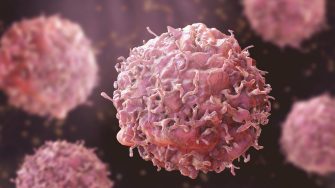The gene discovery that could help one in two ovarian cancer patients
A treatment option could be a step closer for ovarian cancer patients who do not respond to conventional chemotherapy.
A treatment option could be a step closer for ovarian cancer patients who do not respond to conventional chemotherapy.

Researchers at UNSW Sydney and Erasmus MC in the Netherlands have discovered a gene that promotes resistance to chemotherapy treatment, and how to stop it.
Their findings, recently published in the journal Cell Death and Differentiation, could one day help the many ovarian cancer patients who relapse with a more aggressive form of the disease that does not respond to standard of care chemotherapy.
“Most ovarian cancer patients initially respond to therapy,” said UNSW’s School of Biomedical Sciences Professor Peter Gunning, who helped co-author study.
“But about half relapse, and most of these patients will relapse with drug resistant cancer and that's the core problem, because most of these patients will succumb to the disease.”
Professor Gunning and Professor Edna Hardeman, also from the School of Biomedical Sciences, worked with Erasmus PhD student Tong Xu who detected that a gene, tropomyosin 1 (TPM1), was influencing how cancer cells responded to chemotherapy – producing proteins that could drive resistance or sensitivity to treatment.
The PhD candidate then worked with the UNSW professors, who are experts on the gene.
“They wanted to understand how the gene was influencing resistance, but we never thought there would be some product from the gene that would [send cells] in one direction or the other ... it’s so clear cut, it’s like night and day,” Prof. Gunning said.
He had previously identified a chemical that attacks the cancer-promoting protein, which was sent to Rotterdam, and used to successfully restore sensitivity to therapy in ovarian cancer cells.
The universities have decided to patent this discovery and Prof. Gunning hopes to see a candidate drug developed in the next two years which could help more patients better respond to chemotherapy.
“Now that we know there is a chemical that reverses the resistance, the next step is to turn this into a drug.”